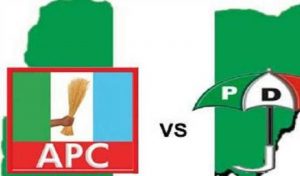Nigeria is awaiting Transparency International, the global panopticon on corruption pervasiveness as it is set to release its Corruption Perception Index, (CPI) for 2018 on Tuesday, (January 29th, 2019). The index will tell the world where each country can be located on a list of 180 countries, going by the 2017 index although journalists who have covered release of TI’s CPI have since learnt that what matters more is the score rather than a country’s position on the list of 180 countries. It is the scores that tells more of the degree of corruption for each country.
 Nigeria is probably where it is being awaited most as, however the result goes, it will generate its own controversy. If it improves, the government of the day will flash it at everyone else’s face and take it as the result of its much contested war on corruption. If the corruption perception ranking does not improve, it will be the government’s political funeral in the hands of the opposition. The problem though is that determining whether it improved or did not improve can be very slippery. As stated above, what matters most is supposed to be the scores rather than a country’s position on the list of 180 countries because it is actually the scores that tells more of the degree of corruption.
Nigeria is probably where it is being awaited most as, however the result goes, it will generate its own controversy. If it improves, the government of the day will flash it at everyone else’s face and take it as the result of its much contested war on corruption. If the corruption perception ranking does not improve, it will be the government’s political funeral in the hands of the opposition. The problem though is that determining whether it improved or did not improve can be very slippery. As stated above, what matters most is supposed to be the scores rather than a country’s position on the list of 180 countries because it is actually the scores that tells more of the degree of corruption.
Right now, there are no hints whatsoever how well or how badly Nigeria has performed. As usual, it is all blank from Berlin, London, Brussels and certainly not from any quarters within Nigeria. Even the Civil Society Legislative Advocacy Centre, (CISLAC), the Nigerian chapter of TI which will be doing the in-country press briefing is completely inaccessible on index. In the 2017 CPI, Nigeria was 148 out of 180 countries.
The CPI remains the most striking global instrument for disciplining states and stakeholders on corruption as a naming and shaming discourse. Critics say that, like every other discourse, it has a paradoxical baggage of producing the very reality it is fighting because saying is doing. That is besides the criticism of it as a disciplinary move built on a geo-cultural writing of corruption. The question, however, is where might the world be today in relation to degree of corruption if there were no TI and its CPI in the last 18 years. It is a waiting game!




























